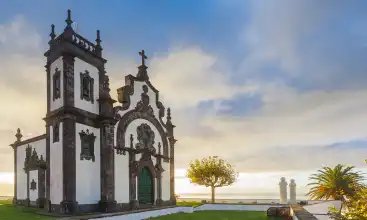- Online car rental since 2005
- Popular countries
- Popular regions
- Popular cities
- Popular airports
- Car Rental Italy
- Car Rental Spain
- Car Rental United States
- Car Rental Portugal
- Car Rental South Africa
- Car Rental France
- Car Rental Netherlands
- Car Rental Germany
- Car Rental United Kingdom
- Car Rental Greece
- Car Rental Austria
- Car Rental Switzerland
- Car Rental Croatia
- Car Rental Belgium
- Car Rental Norway
- Car Rental Ireland
- Car Rental Denmark
- Car Rental Australia
- Car Rental Canada
- Car Rental Sweden
- Car Rental Florida
- Car Rental England
- Car Rental California
- Car Rental Sicily
- Car Rental Mallorca
- Car Rental Tenerife
- Car Rental Sardinia
- Car Rental Ibiza
- Car Rental Madeira
- Car Rental Crete
- Car Rental Gran Canaria
- Car Rental Scotland
- Car Rental Azores
- Car Rental Malta
- Car Rental Corsica
- Car Rental Lanzarote
- Car Rental Fuerteventura
- Car Rental Rhodes
- Car Rental Corfu
- Car Rental La Palma
- Car Rental Amsterdam
- Car Rental Milan
- Car Rental Miami
- Car Rental Lisbon
- Car Rental Malaga
- Car Rental Porto
- Car Rental Cape Town
- Car Rental Rome
- Car Rental Alicante
- Car Rental Bergamo
- Car Rental Barcelona
- Car Rental London
- Car Rental Faro
- Car Rental Orlando
- Car Rental Munich
- Car Rental Vienna
- Car Rental Nice
- Car Rental Johannesburg
- Car Rental Bari
- Car Rental Madrid
- Car Rental Amsterdam Schiphol Airport
- Car Rental Miami International Airport
- Car Rental Lisbon Airport
- Car Rental Malaga Airport
- Car Rental Porto Airport
- Car Rental Milan Malpensa Airport
- Car Rental Alicante Airport
- Car Rental Rome Fiumicino Airport
- Car Rental Bergamo Airport
- Car Rental Faro Airport
- Car Rental Cape Town Airport - International Terminal
- Car Rental Orlando International Airport
- Car Rental Barcelona Airport
- Car Rental Vienna Airport
- Car Rental Munich Airport
- Car Rental Mallorca Airport
- Car Rental Bari Palese Airport
- Car Rental Nice Airport
- Car Rental Bologna Airport
- Car Rental Los Angeles International Airport

Car Rental Azores
Save time and money. We compare the offers of car rental companies in Azores on your behalf.
- Free cancellation Up to 48 hours prior to the scheduled pick-up time
- Best price guarantee Have you found a better price? Let us know and we will make you a better offer.
- 24000+ pick-up locations Locations around the world

Car Rental Azores
EasyTerra Car Rental Azores is an independent car rental comparison site. Our site compares prices from well-known car rental companies so that, as a customer, you can always reserve your car with us at a competitive rate.
Car rental offers in Azores
Whether you're looking for a small rental car or a station wagon for the entire family, we will always have a suitable vehicle at the lowest price. Below are some examples from our selection in Azores.

-
Goldcar From€ 3 /day

-
Goldcar From€ 3 /day -
Drive On Holidays From€ 4 /day -
Rent-A-Car Auto Turística Faialense From€ 6 /day

-
Drive On Holidays From€ 6 /day -
Europcar From€ 9 /day -
Keddy By Europcar From€ 9 /day

-
2Rent From€ 5 /day

-
Drive On Holidays From€ 6 /day -
Rent-A-Car Auto Turística Faialense From€ 8 /day -
Autatlantis From€ 10 /day

-
Drive On Holidays From€ 9 /day -
Rent-A-Car Auto Turística Faialense From€ 12 /day -
Autatlantis From€ 16 /day

-
Ilha Verde Rent a Car From€ 6 /day -
Thrifty From€ 9 /day -
Hertz From€ 10 /day

-
Ilha Verde Rent a Car From€ 6 /day -
Alamo From€ 32 /day -
Enterprise From€ 38 /day

-
Ilha Verde Rent a Car From€ 9 /day -
Hertz From€ 14 /day -
Thrifty From€ 16 /day

-
Wayzor From€ 3 /day -
Drive On Holidays From€ 4 /day -
Thrifty From€ 16 /day

-
Goldcar From€ 3 /day -
Ilha Verde Rent a Car From€ 8 /day

-
Ilha Verde Rent a Car From€ 9 /day

-
Goldcar From€ 4 /day -
Ilha Verde Rent a Car From€ 9 /day -
Avis From€ 29 /day

-
2Rent From€ 5 /day -
SurPrice car rentals From€ 5 /day -
Keddy By Europcar From€ 10 /day

-
Ilha Verde Rent a Car From€ 9 /day -
Guerin From€ 10 /day -
Sixt From€ 12 /day

-
SurPrice car rentals From€ 5 /day -
Guerin From€ 9 /day -
Hertz From€ 19 /day

-
SurPrice car rentals From€ 6 /day -
Goldcar From€ 11 /day -
Drive On Holidays From€ 11 /day

-
Keddy By Europcar From€ 10 /day -
Europcar From€ 10 /day -
Drive On Holidays From€ 13 /day

-
Goldcar From€ 4 /day -
Rent-A-Car Auto Turística Faialense From€ 26 /day

-
Goldcar From€ 4 /day -
SurPrice car rentals From€ 7 /day -
Guerin From€ 10 /day

-
Ilha Verde Rent a Car From€ 12 /day -
Europcar From€ 12 /day -
Keddy By Europcar From€ 12 /day

-
Drive On Holidays From€ 5 /day -
Goldcar From€ 6 /day -
SurPrice car rentals From€ 7 /day

-
Wayzor From€ 5 /day -
Sixt From€ 15 /day

-
Guerin From€ 12 /day -
Thrifty From€ 19 /day

-
SurPrice car rentals From€ 5 /day

-
Goldcar From€ 5 /day

-
Keddy By Europcar From€ 12 /day -
Guerin From€ 12 /day -
Europcar From€ 14 /day

-
Ilha Verde Rent a Car From€ 9 /day

-
Ilha Verde Rent a Car From€ 11 /day

-
Drive On Holidays From€ 15 /day -
Guerin From€ 17 /day -
Alamo From€ 19 /day

-
Drive On Holidays From€ 16 /day -
Advantage Rent a Car From€ 65 /day -
Europcar From€ 74 /day

-
Guerin From€ 18 /day -
Alamo From€ 21 /day -
Europcar From€ 41 /day

-
Guerin From€ 16 /day -
Alamo From€ 19 /day -
Europcar From€ 38 /day

-
SurPrice car rentals From€ 17 /day

-
Guerin From€ 20 /day -
Sixt From€ 20 /day -
Enterprise From€ 23 /day

-
Ilha Verde Rent a Car From€ 18 /day

-
Guerin From€ 28 /day

-
Guerin From€ 30 /day

-
Sixt From€ 30 /day -
Ilha Verde Rent a Car From€ 37 /day

-
Drive On Holidays From€ 33 /day

-
Sixt From€ 40 /day

-
Guerin From€ 34 /day

-
Autatlantis From€ 34 /day

-
Autatlantis From€ 42 /day

-
Ilha Verde Rent a Car From€ 37 /day

-
Guerin From€ 29 /day -
Ilha Verde Rent a Car From€ 43 /day

-
Sixt From€ 30 /day -
Ilha Verde Rent a Car From€ 39 /day

-
Sixt From€ 30 /day -
Ilha Verde Rent a Car From€ 45 /day

-
Guerin From€ 32 /day

-
Ilha Verde Rent a Car From€ 33 /day

-
Ilha Verde Rent a Car From€ 38 /day

-
Ilha Verde Rent a Car From€ 53 /day

-
Ilha Verde Rent a Car From€ 39 /day

-
Ilha Verde Rent a Car From€ 40 /day

-
Ilha Verde Rent a Car From€ 30 /day

-
Ilha Verde Rent a Car From€ 32 /day

-
Drive On Holidays From€ 34 /day

-
Drive On Holidays From€ 39 /day

-
Guerin From€ 47 /day -
Autatlantis From€ 63 /day -
Ilha Verde Rent a Car From€ 78 /day

-
Guerin From€ 43 /day -
Autatlantis From€ 69 /day -
Ilha Verde Rent a Car From€ 83 /day

-
Autatlantis From€ 50 /day

-
Autatlantis From€ 58 /day

-
2Rent From€ 60 /day -
Ilha Verde Rent a Car From€ 77 /day

-
Guerin From€ 11 /day -
Sixt From€ 15 /day -
Alamo From€ 60 /day

-
Ilha Verde Rent a Car From€ 11 /day

-
Ilha Verde Rent a Car From€ 15 /day

-
Guerin From€ 12 /day -
Thrifty From€ 14 /day -
Hertz From€ 16 /day

-
Ilha Verde Rent a Car From€ 12 /day -
Thrifty From€ 14 /day -
Sixt From€ 15 /day

-
Guerin From€ 15 /day -
Thrifty From€ 17 /day -
Hertz From€ 22 /day

-
Ilha Verde Rent a Car From€ 13 /day

-
Guerin From€ 13 /day

-
Sixt From€ 15 /day

-
Guerin From€ 29 /day -
Ilha Verde Rent a Car From€ 43 /day

-
Sixt From€ 30 /day -
Drive On Holidays From€ 36 /day -
Ilha Verde Rent a Car From€ 37 /day

-
Sixt From€ 30 /day -
Drive On Holidays From€ 39 /day -
Ilha Verde Rent a Car From€ 45 /day

-
Guerin From€ 32 /day

-
Drive On Holidays From€ 33 /day

-
Guerin From€ 34 /day -
Rent-A-Car Auto Turística Faialense From€ 66 /day

-
Guerin From€ 44 /day -
Rent-A-Car Auto Turística Faialense From€ 71 /day

-
Ilha Verde Rent a Car From€ 43 /day

-
Autatlantis From€ 43 /day

-
Sixt From€ 11 /day -
Ilha Verde Rent a Car From€ 12 /day -
Drive On Holidays From€ 13 /day

-
Sixt From€ 13 /day -
Keddy By Europcar From€ 26 /day -
Europcar From€ 58 /day

-
Drive On Holidays From€ 15 /day

-
Ilha Verde Rent a Car From€ 24 /day

-
Ilha Verde Rent a Car From€ 28 /day

-
Ilha Verde Rent a Car From€ 27 /day

-
Ilha Verde Rent a Car From€ 31 /day

-
Europcar From€ 31 /day

-
Europcar From€ 33 /day

-
Goldcar From€ 4 /day -
Guerin From€ 11 /day -
Drive On Holidays From€ 13 /day

-
Drive On Holidays From€ 5 /day -
Goldcar From€ 6 /day -
SurPrice car rentals From€ 7 /day

-
Keddy By Europcar From€ 12 /day -
Europcar From€ 16 /day

-
Ilha Verde Rent a Car From€ 10 /day -
Enterprise From€ 13 /day -
Alamo From€ 13 /day

-
Guerin From€ 10 /day -
Autatlantis From€ 24 /day

-
Guerin From€ 15 /day -
Goldcar From€ 72 /day

-
Guerin From€ 10 /day -
Thrifty From€ 11 /day -
Hertz From€ 18 /day

-
Keddy By Europcar From€ 12 /day -
Europcar From€ 14 /day

-
Sixt From€ 15 /day -
Enterprise From€ 17 /day -
Goldcar From€ 84 /day

-
Ilha Verde Rent a Car From€ 13 /day

-
Ilha Verde Rent a Car From€ 47 /day

-
Ilha Verde Rent a Car From€ 53 /day
Popular cities in Azores

Useful tips for a well-prepared trip
Which insurance should I choose, and what's the deal with the deposit? Read our articles with useful information and tips to ensure you choose the right rental car for you.
Car rental locations in Azores
EasyTerra Car Rental compares rental car rates at the following locations
Location information for Azores
Most popular car hire locations in Azores
Introduction
The Azores are a volcanic island group in the Atlantic Ocean. It is a large archipelago of more than 600 kilometers long. The entire sea between these island is a special economic zone and consists of more than 1.5 million square kilometers. The islands each have their own character, but are all rocky with beautiful bays and lovely lagoons.
Population
On the nine inhabited islands of the Azores there live almost 250,000 people. More than half live on the main island São Miguel.
Location
The Azores are situated in the Atlantic Ocean, about 1,500 kilometers west of the Portuguese mainland and approximately 3,300 kilometers of the coast of North America. The volcano Pico on the eponymous island is not only the highest point of the Azores, but of Portugal as well.
Economy
Livestock breeding (for milk and meat production) is of great importance for the local economy. However, there also is some agriculture on the rather unfruitful Azores: grapes, pineapples and bananas are cultivated. The cultivation of tea and sugar beets are less important.
The commercial fishing industry is namely focused on tuna, which is mainly canned for export. The Pico island inhabitants used to be active whale hunters. Nowadays, searching for whales (and dolphins) is a tourist attraction. Tourism is the indisputable source of income of the Azores.
Airports
Each of the nine inhabited islands has an airport, but the most important airport is João Paulo II near the capital Ponta Delgada on the main island São Miguel. There are connections with Europe and North America.
Public transport
All islands, except for Corvo, have bus transportation. On São Miguel, Terceira and Pico buses drive frequently and on time, but on the smaller islands the bus drives only two or three times a day and not on the weekend. For transport between the islands, you can choose between flying and a ferry. The ferry only sails between the central islands.
Traffic and parking
To explore the larger islands São Miguel and Terceira, a rental car is the ideal transportation. Do take into account that the roads are narrow, steep and curvy.
Hotels
There is a large offer of accommodations on the Azores in all price ranges. From basic camping sites up to luxurious hotels on the larger islands. Try to spend the night in a so called 'quinta' (usually the house of a rich gentleman farmer).
External sources
For more information about the Azores, we recommend Google and the following sources:
- Wikipedia, Azores
- Azorestourism (English and Portuguese)
Important up-to-date information for renting a car in Azores
| 🚙 Number of rental agencies | 31 |
| ⭐ Most popular car rental agency | Ilha Verde Rent a Car |
| 💰 Cheapest car rental company | Wayzor |
| 🏆 Best rated car rental agency | Hertz |
Practical information
-
CurrencyEuro
-
Driving directionRight
-
City speed limit50 km/h
-
Freeway speed limit90 km/h
-
LanguagePortuguese
-
Popular car categoryEconomy
What most people want to know
The following questions and answers are a selection of the most popular questions. If you do not find the answer to your question, have a look at the Frequently Asked Questions page or contact us.
- Hertz
- Autatlantis
- Guerin
- Drive On Holidays
- Alamo
- Ilha Verde Rent a Car
- Thrifty
- Avis
- Keddy By Europcar
- Enterprise
- Sixt
- Europcar
- Autounion Car Rental
- Abbycar
- addCarRental
- Goldcar
- InterRent
- Rhodium Car Rental
- SurPrice car rentals
- 2Rent
- Wayzor
- Rent-A-Car Auto Turística Faialense
- Auto Turistica
- Ace Rental Cars
- FireFly Car Rental
- Advantage Rent a Car
- Rent a star
- National Car Rental
- Dollar Rent a Car
- Economy Rent a Car
- United rent a car



